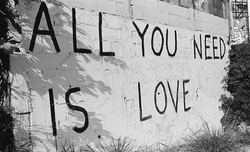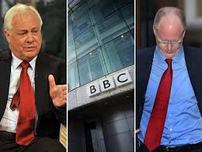
But only marriage is rewarded by the Tory’s.
It’s been a long-held belief of the Conservative party that marriage is good for their constituents. Marriage is moral! Marriage is proper! All the best people get married! Marriage is RIGHT!
Well, hoorah for the Conservative Party – we’re all entitled to our opinions. It becomes worrying however, when personal opinions move into politics and last weekend David Cameron announced that should his party win the next general election, he will be granting a tax break to married couples. Love is love, commitment is commitment, he tweeted.
Now, I’ve always believed that personal opinion has no place in politics, and that politicians have no place in our personal lives. They are there to look after us; they are there to protect us in times of war and prevent unnecessary war; they are there to manage the finances of the country; to pick up litter, to oversee our hospitals and make decisions that it would be difficult to reach at a local level. They are not there to tell us how to live our lives.
With 42% of marriages ending in divorce, how is a wedding a bigger sign of commitment than living together, having children and buying a house together? While irresponsible parents may walk away from their children, a wedding certificate won’t hinder them anymore than their internal morals, and it's far more difficult to extricate yourself from a mortgage with equality than it is to end a marriage.
I find myself baffled by the Prime Minister’s arguments.
Why should I be penalised because I have no religious convictions, don't need to 'affirm' my love for my partner with an embarrassing public ceremony, have no wish to be 'the centre of attention' for a single, expensive day as the birth of my children have already given me 'the happiest day of my life', and don't see the point in wasting money I need to use elsewhere on a day I have no wish for? Who is to say that my life choices are less valid than my married neighbours? Why do they need more money than me simply because they were inclined towards public spectacle and I am not? Well, those wedding ceremonies are expensive, so perhaps they could use the extra cash!
Getting married is expensive; even if you don’t go for the big dress, photographer, posh venue and demonstrative reception – risking the annoyance of all your friends and family – you still have to pay for the registrar, notice, certificate and various other administrative fees. Personally, I’d prefer to spend that on household bills; a holiday; clothes for the family; weekend treats.
The problem is, when I say ‘I don’t want to get married’ people automatically think ‘aww, what a pity; he obviously hasn’t asked her.’ But I don’t want to get married. I really, really, honestly do not want to get to married. I never have wanted to, even as a child. In fact, the idea mildly appals me – speaking publicly, wearing uncomfortable clothes; there’s little I’d rather do less. And yet if I maintain that standpoint I’m likely to be financially penalised... Even though my ‘sinful’ relationship may last longer than the multitude condoned by church and state.
And what of those who have no wish for a permanent relationship? They’re not promiscuous, but solitary beings, who prefer not live with other people; they’re not necessarily anti-social, they just like to have space of their own. What of those who just never found the person they were looking for? At the beginning of 2013 there were 10.9 million single people living in the UK. They too will find themselves being discriminated against.
I have nothing against marriage, no bad experiences to report – my parents have been married for more than 40 years, so they’re a reasonable poster couple for the institution.
On the other hand, I have a lot against being morally dictated to and being told that my choices are wrong.
My message? There is no room in politics for nannying Mr Cameron; we’re all grown-ups; we’re all able to make our own choices. Don’t try to bribe us all into forming your idealised state; it will simply lead to even more divorces.
Well, hoorah for the Conservative Party – we’re all entitled to our opinions. It becomes worrying however, when personal opinions move into politics and last weekend David Cameron announced that should his party win the next general election, he will be granting a tax break to married couples. Love is love, commitment is commitment, he tweeted.
Now, I’ve always believed that personal opinion has no place in politics, and that politicians have no place in our personal lives. They are there to look after us; they are there to protect us in times of war and prevent unnecessary war; they are there to manage the finances of the country; to pick up litter, to oversee our hospitals and make decisions that it would be difficult to reach at a local level. They are not there to tell us how to live our lives.
With 42% of marriages ending in divorce, how is a wedding a bigger sign of commitment than living together, having children and buying a house together? While irresponsible parents may walk away from their children, a wedding certificate won’t hinder them anymore than their internal morals, and it's far more difficult to extricate yourself from a mortgage with equality than it is to end a marriage.
I find myself baffled by the Prime Minister’s arguments.
Why should I be penalised because I have no religious convictions, don't need to 'affirm' my love for my partner with an embarrassing public ceremony, have no wish to be 'the centre of attention' for a single, expensive day as the birth of my children have already given me 'the happiest day of my life', and don't see the point in wasting money I need to use elsewhere on a day I have no wish for? Who is to say that my life choices are less valid than my married neighbours? Why do they need more money than me simply because they were inclined towards public spectacle and I am not? Well, those wedding ceremonies are expensive, so perhaps they could use the extra cash!
Getting married is expensive; even if you don’t go for the big dress, photographer, posh venue and demonstrative reception – risking the annoyance of all your friends and family – you still have to pay for the registrar, notice, certificate and various other administrative fees. Personally, I’d prefer to spend that on household bills; a holiday; clothes for the family; weekend treats.
The problem is, when I say ‘I don’t want to get married’ people automatically think ‘aww, what a pity; he obviously hasn’t asked her.’ But I don’t want to get married. I really, really, honestly do not want to get to married. I never have wanted to, even as a child. In fact, the idea mildly appals me – speaking publicly, wearing uncomfortable clothes; there’s little I’d rather do less. And yet if I maintain that standpoint I’m likely to be financially penalised... Even though my ‘sinful’ relationship may last longer than the multitude condoned by church and state.
And what of those who have no wish for a permanent relationship? They’re not promiscuous, but solitary beings, who prefer not live with other people; they’re not necessarily anti-social, they just like to have space of their own. What of those who just never found the person they were looking for? At the beginning of 2013 there were 10.9 million single people living in the UK. They too will find themselves being discriminated against.
I have nothing against marriage, no bad experiences to report – my parents have been married for more than 40 years, so they’re a reasonable poster couple for the institution.
On the other hand, I have a lot against being morally dictated to and being told that my choices are wrong.
My message? There is no room in politics for nannying Mr Cameron; we’re all grown-ups; we’re all able to make our own choices. Don’t try to bribe us all into forming your idealised state; it will simply lead to even more divorces.




 RSS Feed
RSS Feed
